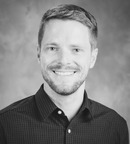REASON Spring School 2018 Symposium
Selected talks (and follow-up workshops) on the topic of "The use of evidence in research and practice across domains":
 |
Eileen Gambrill (University of California at Berkeley) Ignorance and argumentation |
Talk Abstract
The focus of this presentation is on the kinds and sources of ignorance pertinent to making informed decisions in the helping professions.A real life example will be used to explore the many decisions involved over time regarding an important medical problem,the sources and kinds of ignorance that may enter at different points and opportunities to decrease avoidable ignorance,for example by posing relevant questions and sound argumentation. Interest in ignorance, including its strategic use, has blossomed over the past years and this presentation draws on this literature as well as literature on expertise,argumentation and decision making, including the play of common cognitive biases and fallacies.
The importance of interpersonal communication styles in shaping ignorance is also discussed.The audience will have an opportunity to suggest vital questions and reasons for posing them at different points that are necessary to ferret out information that is not shared.
Short Bio: Eileen Gambrill, PhD, is Professor of the Graduate School, School of Social Welfare at the University of California, Berkeley, U.S.A. Her areas of interest include decision making in the helping professions, obstacles to the integration of research, practice and policy in the helping professions, and the ethics of practice. Publications include Propaganda in the Helping Professions (2012, Oxford University Press), Critical thinking in the helping professions (3rd Ed., 2012,Wiley), and Social work practice: A critical thinker's guide (3rd Ed, 2013, Oxford University Press).

Foto: facesbyfrank |
Manfred Prenzel (Technical University of Munich) The use of evidence in education Update: Presentation held by Prof. Johannes Bauer (Erfurt University) |
Talk Abstract
The bacillus “evidence” has also infected education. Until now it is not clear whether the different organismic defence systems of the educational body may resist the attacks; however, ideas of evidence-based education are proliferating. Educational policy is more and more asking for data and “evidence”, sometimes proclaiming a shift towards evidence-based policy. Using some examples from Germany, different approaches and their limitations will be discussed: Monitoring systems and comparative studies for example now seem to be a natural part of evidence-based decision; the use of evidence by policy, however, can be selective, opportunistic or inconsequent. From a research perspective, however, it has to be accepted that evidence is only one aspect of political decisions besides other. In my presentation I will try to differentiate some types of evidence resulting from research also with respect to their potential function in political discussion. One overarching message from recent studies in education says that “distal” conditions of learning processes (e.g. structure of the school system) are less important than “proximal” conditions (classroom, teaching processes, e.g.). This message, however, prompted education policy to demand first of all evidence that helps to change educational practice towards an evidence-orientation. Here again, several types of evidence can be differentiated that are linked to different research approaches. The “evidence movement” which has been pushed by quite a number of researchers in education seems to have a number of consequences for future research strategies. Several examples of these consequences will be discussed, including consequences for initial and continuing teacher training.
Short Bio: Manfred Prenzel, PhD, holds the Susanne Klatten Endowed Chair of Educational Research at the Technische Universität München (TUM) in Munich/Germany. He completed a PhD as well as an advanced doctoral degree (Habilitation) in Education and Educational Psychology at the University of Munich. From 1993 he was Professor of Educational Psychology at the University of Regensburg, before he changed (in 1997) to the Leibniz-Institute for Science Education (IPN) in Kiel. From 2000 until 2009 he was the Managing Director of IPN. In 2009, he was appointed by TUM as Founding Dean of the just established TUM School of Education. From 2014 until 2/2017 Manfred Prenzel served as Chair of the German Council of Science and Humanities (Wissenschaftsrat).
The main topics of his research relate to issues of learning and teaching in different domains (science, mathematics, medicine, economics), especially on motivation / interest, conceptual change, and patterns of teaching and learning. For many years, he has been involved in large scale assessments (first of all in PISA as the National Project Manager in Germany for the cycles 2003, 2006, 2012, and as a member of the International PISA Science Expert Group).
 |
Simine Vazire (University of California, Davis) Thinking critically about scientific evidence: Lessons from the replicability crisis in psychology |
Talk Abstract
A fundamental part of the scientific enterprise is for each field to engage in critical self-examination to detect errors in our theories and methods, and improve them. Psychology has recently been undergoing such a self-examination. Psychological scientists arguably tackle one of the hardest phenomena to understand and predict: human behavior. Naturally, our data are noisy and our findings are often tentative. However, we are slowly building knowledge and making our theories more complete. The recent self-analysis has revealed several ways we can further improve our research practices to make our findings more sound, including: collecting larger datasets (more participants, more kinds of measures, more observations), being more transparent about our research process and results, and conducting more replications. These new norms are gaining steam within psychology and beyond, making science stronger.
Short Bio: Simine Vazire is an associate professor in the department of psychology at UC Davis. She is the director of the Personality and Self-Knowledge laboratory. She is the co-founder and current president of the Society for the Improvement of Psychological Science, a senior editor at Collabra: Psychology, and editor in chief of Social Psychological and Personality Science. Her research examines accuracy and bias in people's perceptions of their own behavior and personality. She also conducts meta-science examining how people interpret scientific findings, and tracking trends in the methods and results of published studies in psychology over time. She teaches and blogs about research methods and reproducibility.
 |
Christopher Osterhaus (LMU Munich) Symposium Discussant |
Christopher Osterhaus is a postdoctoral research associate in psychology at the Ludwig-Maximilians-Universität München. He received a doctoral degree from the Freiburg University of Education and was a postdoctoral fellow at the University of Wisconsin-Madison. His research explores how children acquire scientific-thinking skills and how the basic methods of science can be made accessible to (young) children.

